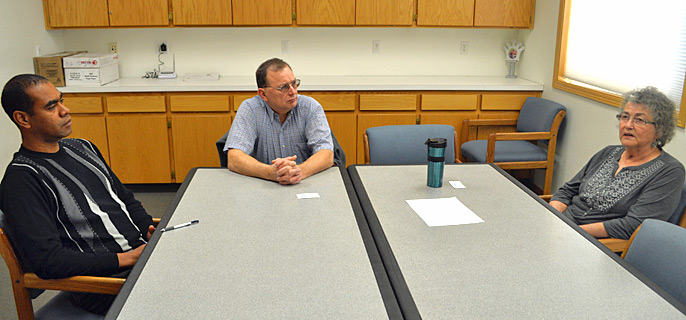
[quote style=”2″]Court-Appointed Special Advocates Work on Behalf of Kids Removed From Home[/quote]
Few things are more important in the life of a child than having a stable home. But for children who have been removed from their home for their own safety, their daily life can be chaotic.
Some are placed in a temporary shelter before moving into foster care. They have to appear in court before a judge and attorneys. They have caseworkers assigned to them. Their lives are anything but stable.
“These children are in chaos,” said Diane Shockman, a court-appointed special advocate or CASA. “The CASA volunteer is the one constant in that child’s life through the course of the case.”
Court-appointed special advocates are assigned to children by the court to serve as the voice of the child. Shockman has worked with about 50 children during her time as a CASA volunteer. She and other special advocates meet with the children assigned to them at least once a month to find out how they are doing, what they need and to help determine what is best for the child. Often, what may be best for the child is to return them to their home.
Sometimes, however, that is not possible. A lot depends upon the parents whose behavior and life decisions led to the child being removed from the home in the first place. Often it is drug and alcohol usage that leads to the child being removed from the home for their own safety. Parents are given a chance to clean up their act, but if they are not successful, an alternative is needed and that may mean foster care or adoption.
“You feel bad for the parents, but they made their choice,” Shockman said. “Our goal is to find a safe, permanent home for the children, whether that is back with the parents or through an adoptive resource. It’s damaging to these kids not to have permanency in their lives.”
Charlie Clupny is in his first year as a court-appointed special advocate. Like Shockman, he takes his role very seriously.
“Being a CASA is keeping your finger on the pulse of the child’s safety,” he said. “I’m trying to figure out how much pressure I need to keep on the pulse.”
By making routine visits with the children appointed to them, special advocates can help determine what is ultimately best for the child. For example, in one case, Shockman served as an advocate for a young girl who was living with her father and grandmother. The girl had a sister whom she was close with, but the sister, who was not living with the father and grandmother, was placed into custody. The two sisters were not able to see one another.
“These two sisters were very, very bonded,” Shockman said. “I thought it was in the best interest of the girl to have contact with her sister, so I saw to it that they were able to visit one another and play with each other.”
Shockman remembers a case in which an infant was removed from the home and into a foster home. Attempts were made to place the baby in the home of a relative.
“They tried to place the child with a grandparent, but that didn’t work out,” Shockman said. “Then they tried to place the child with another relative, but that didn’t work out.” Meanwhile, the foster parents had grown to love the child and wanted to adopt it, but efforts first had to be made to find a relative willing and able to raise the child. Finally, when all efforts to find a relative to adopt the child failed, the foster parents were able to adopt the baby, who by now was 18 months old.
“It was the best-case scenario,” Shockman said. “The foster parents were the only parents the child had known. It was a happy ending. Those are the cases that make you feel good.”
Clupny said it’s emotionally difficult to determine that a parent is not capable of caring for their own children.
“The hardest thing to say to a judge is that a parent needs more time to be a better parent,” he said. “But we are often dealing with parents who have serious problems.”
CASA currently has 27 volunteers who work with about 50 kids. But there are around 100 more children for whom there are no CASA volunteers. Jesus Rome is the coordinator for CASA of Umatilla County. He is looking to recruit another 30 to 40 volunteers to serve as court-appointed special advocates. It takes 30 hours of training to become a CASA volunteer and you must be at least 21 to be a CASA. Once they are fully trained, volunteers typically spend 10-20 hours per month over the next 12 to 18 months working with the child and family.
But, said Rome, CASA is not for everyone.
“If a person is really busy, they typically don’t make very good CASAs,” he said. “My best volunteers are retired or semi-retired.”
That description fits both Shockman and Clupny, who also are adoptive parents. Shockman said parents needed not be perfect in order for their children to be returned to the home.
“We are not looking for perfect parents because there are no perfect parents,” Shockman said. “But we can help them to be good parents.”
To learn more about CASA, call 541-564-6878 or visit the CASA website.










